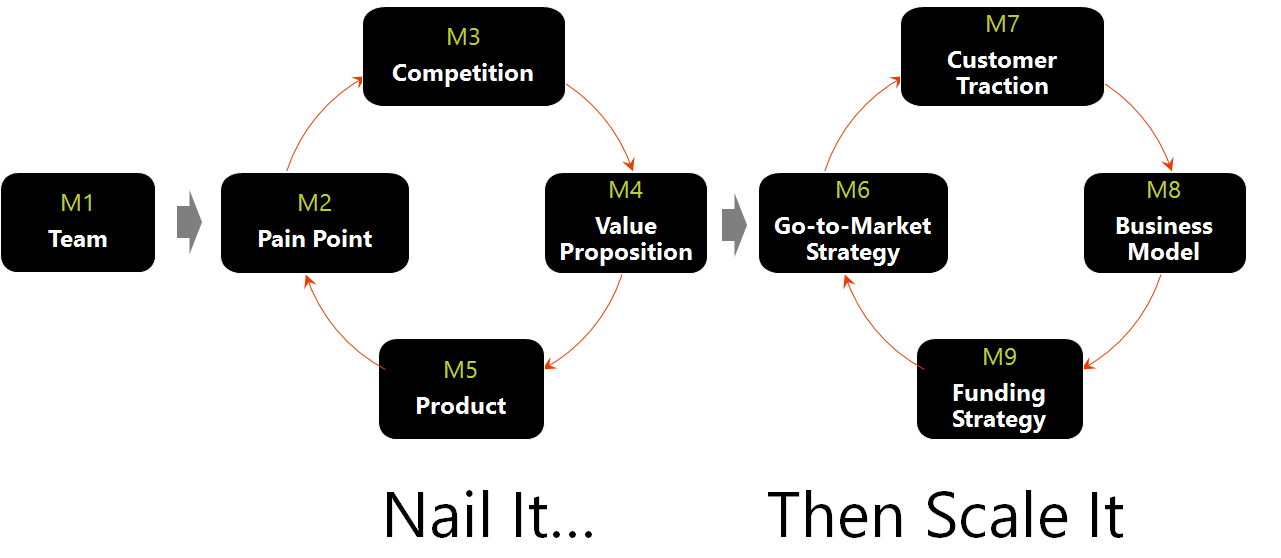In my experience, having effective, talented, and knowledgeable mentors has been the most powerful startup accelerator that I know. The best mentors I've worked with do a lot of the things on this list. You can call these the 9 rules of being a mentor - they will help you provide feedback to entrepreneurs you know and respect. These are not meant to be a definitive list (you should make your own list of things that work) and will get you started toward the process of sharing your expertise with a startup team.
Rule #1: Use your Superpower (and know what it is)
Maybe you are amazing at Operations. Perhaps you understand Finance better than anyone you know. Or you can design an email marketing campaign to ensure the highest percentage of opened emails. You know your superpower (or you should) - and you can be a really effective mentor if you can leverage your experience in a way that doesn't say "do this, or else" to the entrepreneur you're advising.
Rule #2: Be Mindful of Limited Time
You are busy; the entrepreneurs are busy too. So show up on time, whether it's an in person meeting or a phone call. Give people information to review before the meeting. And answer any questions promptly so that you can give the best impression possible to a budding entrepreneur about how you can do things the right way. (Bonus points awarded if you thank them for emailing you and demonstrate a great customer service affect.)
Rule #3: Give to Get
This mentoring relationship is not about you: it's about what you can provide to a person trying to do a very difficult thing. If you do nothing else with your mentoring relationship, you should be focusing on what the other person says that they need (and listening for the unspoken, unmet needs as well.) You can also use the power of your networks to spread the word and really amplify the efforts of a fledgling business.
Rule #4: Make Introductions and Provide Context
I'm sure you've received more than a few emails or requests in your time where you read the email and are not sure why the person is contacting you and how they would like you to help. Providing context makes things better for you, the entrepreneurs, and anyone else they are working with. For example, "This is ____, he/she is solving this problem ____ for this customer ___ . It would be great if you could (clearly defined ask) by (clearly defined date.) If this doesn't work for you, please suggest another resource who might be able to help." is a short, focused way to request assistance. You may also need to do a "pre-ask" and make sure the resource is willing and able to help.
Rule #5: Build a Community of Mentors
A community is only as effective as its members, and the totality of the network provides the relationships and ideas that make the network really thrive and grow in value. Please meet the other Mentors, the other startups, and be open to the idea that you are always learning. You never know what a day will bring when you're open to new opportunities.
Rule #6: Only Offer What You can Deliver
The relationship with your startup company will be better if you set ground rules for how you can be contacted, what you can offer, and what you're expecting to give. (You might ask the same questions of them.) Setting these expectations up front will avoid disappointment and will make it clear what sort of communication cadence you need to build.
Rule #7: Make "Checking In" into a Habit
Set up a regular meeting with your team – either in person or on Skype – and encourage the entrepreneurs to drive the meeting using a well-defined agenda. A great start to an agenda (suggest your own favorite) is "what I did, what I'm doing, and where I need help." Sending answers to the same set of questions is also a great way for teams to inform their mentors - a tool like iDoneThis or 15Five or a shared Google Doc can do the trick here.
Rule #8: It's Not Your Startup
Building a relationship with a set of entrepreneurs is exciting, and sometimes develops into a lifelong relationship. And remember that you are there to provide advice, to help frame decisions, and to be correct when someone asks you a specific question. But it's not your startup. Remembering that fact makes it easier for you to deliver difficult and important advice, and it also frees the entrepreneurs to ignore your advice when they need to make their own way.
Rule #9: Ask the Right Questions
In best Steve Blank form, encourage your teams to "Get Out of the Building" and validate their assumptions with real customers as soon as possible. You can help them build their hypotheses by asking incisive questions, but ensure they make key decisions based on the customer insights they uncover during customer validation.
Are these the same rules I would have written when I first joined a startup? Nope. So remind yourself that your own personal rules for serving as a mentor (and for being mentored) will change over time. Your job as a mentor should be to focus on creating, communicating, and delivering unique value for the startup you're mentoring, and to help them do the same for their customers.
This guest blog post was courtesy of Greg Meyer, a 9Mile Labs mentor. You can learn learn more about Greg at his website or by following him on Twitter (@gmeyer)

